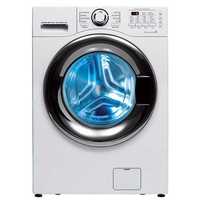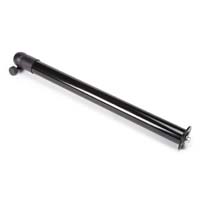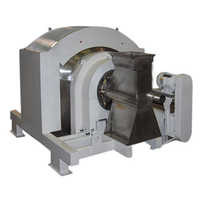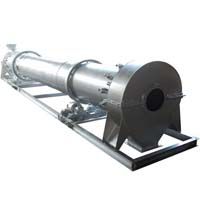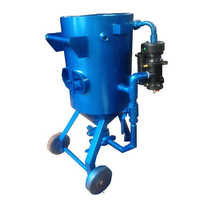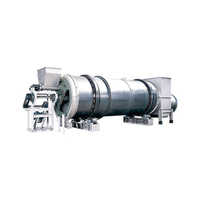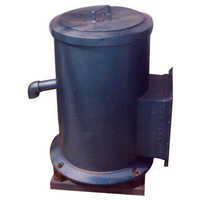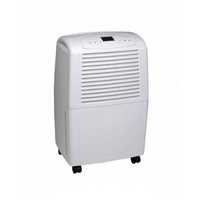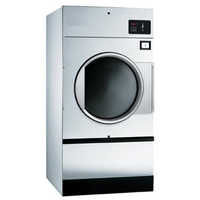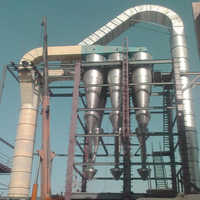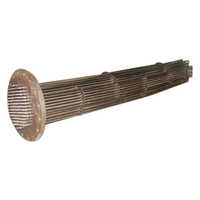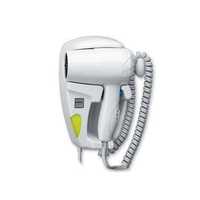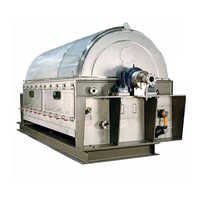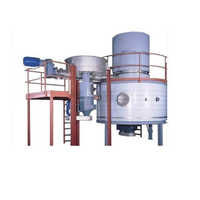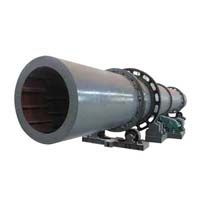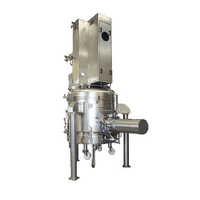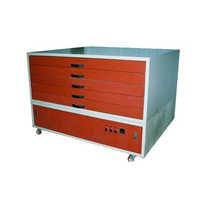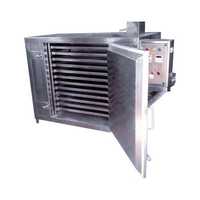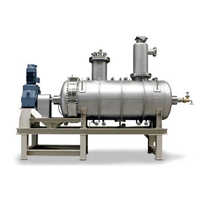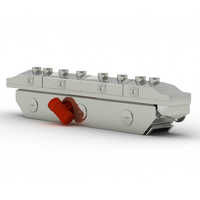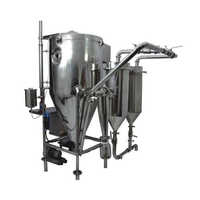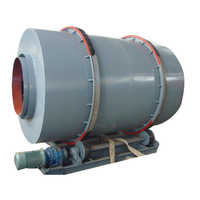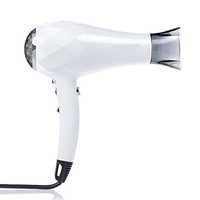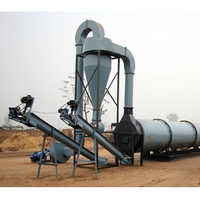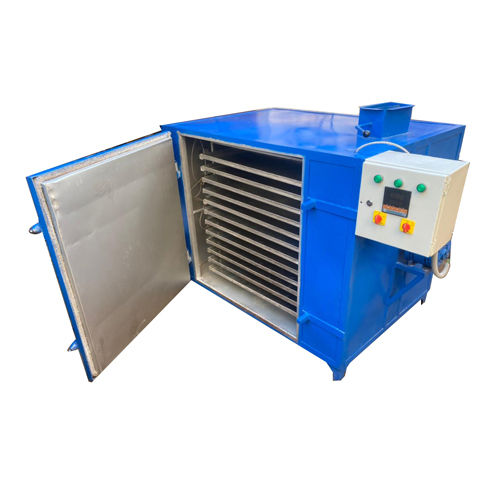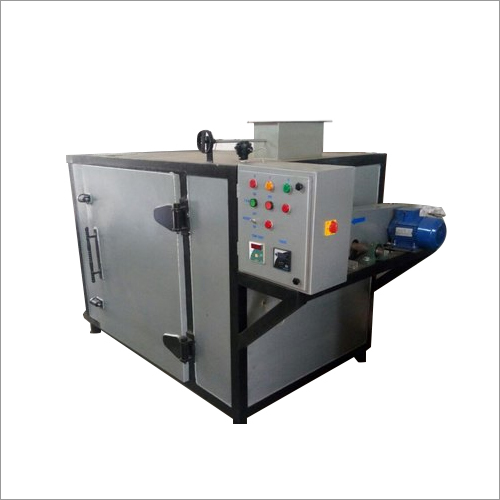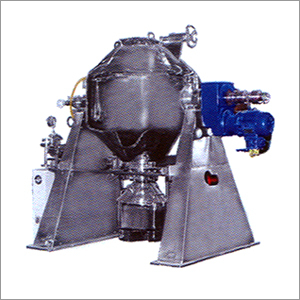Industrial Dryers
(2660 products)
Explore More Categories
Product Showcase
Made in India
Silver Tray Dryer Machine
Price: 150000 INR (Approx.)/Piece
MOQ - 1 Piece/Pieces
Color - Silver
Product Type - Tray Dryer
Usage - Industrial
3 Years
Business Type: Manufacturer
INNOVATIVE ENGINEERING WORKS
Rotocone Vacuum Dryers
Price: 200000.00 INR (Approx.)/Unit
MOQ - 1 Unit/Units
22 Years
Business Type: Manufacturer | Supplier
DIPESH ENGINEERING WORKS
Made in India
White Hopper Dryer
MOQ - 1 Piece/Pieces
Product Type - Hopper Dryer
Usage - Industrial
Color - White
14 Years
Response Rate: 82.22%
Business Type: Manufacturer | Exporter
RE BLOWERS INDIA PRIVATE LIMITED
Made in India
Industrial Rotary Dryer Voltage: 415 Volt (V)
Price Trend: 400000 - 1000000 INR (Approx.)/Unit
MOQ - 1 Unit/Units
Product Type - Industrial Rotary Dryer
Temperature - 200 Celsius (oC)
Usage - Industrial
5 Years
Business Type: Manufacturer | Supplier
DUEX INDUSTRIAL SYSTEMS
Made in India
Lime Sludge Dryer
Price: 50000 INR (Approx.)/Unit
MOQ - 1 Unit/Units
20 Years
Business Type: Manufacturer | Distributor
WHIRLER CENTRIFUGALS PVT. LTD.
Made in India
Carbon Steel Molecular Sieve Dryer
Price: 100000 INR (Approx.)/Unit
MOQ - 1 Unit/Units
Material - Carbon Steel
21 Years
Business Type: Manufacturer | Exporter
SUNRISE PROCESS EQUIPMENTS PRIVATE LIMITED
Made in India
Agitated Thin Film Dryer - Color: Silver
Price: 1000000 INR (Approx.)/Unit
MOQ - 1 Unit/Units
Usage - For Industrial Use
Width - 10-50 Meter (m)
Product Type - Agitated Thin Film Dryer
15 Years
Business Type: Manufacturer | Exporter
Ketav Consultant
Made in India
Rotary Drum Dryer - Color: Blue
Price: 1400000 INR (Approx.)/Number
MOQ - 01 Number
Product Type - Rotary Drum Dryer
Color - Blue
Usage - Industrial
3 Years
Business Type: Manufacturer | Supplier
KRVN MACHINERY
Made in India
Compressed Air And Gas Dryer Usage: Industrial
Price: 2000.00 INR (Approx.)/Piece
MOQ - 1 Piece/Pieces
Length - 130 Centimeter (cm)
Width - 140 Centimeter (cm)
Color - Green
6 Years
Business Type: Manufacturer | Supplier
GTS FILTERS AND SYSTEMS (INDIA) PRIVATE LIMITED
Made in India
Stainless Steel Drum Flaker
Price: 500000 INR (Approx.)/Unit
MOQ - 1 Unit/Units
Usage - industrial
Product Type - Drum Flaker
Weight - 4300 Kilograms (kg)
13 Years
Business Type: Manufacturer | Exporter
PRATHAM ENGINEERING
Made in India
High Quality Fluid Bed Dryer
3 Years
Business Type: Manufacturer
BOMBAY PHARMA EQUIPMENTS PVT. LTD
Made in India
Mushroom Dryer Machine
MOQ - 1 Piece/Pieces
12 Years
Business Type: Manufacturer | Exporter
OPTYTECH ENGINEERS
Made in India
Silver User Friendly Oil Dryer Machine For Sev, Gathiya, Papadi Manufacturing Line
Price: 23000.00 INR (Approx.)/Piece
MOQ - 1 Piece/Pieces
Color - Silver
Weight - 95.00 Kilograms (kg)
Usage - For Sev, Gathiya, Papadi Manufacturing Line
6 Years
Business Type: Manufacturer | Trading Company
JACKSON MACHINE
Made in India
Tray Dryers
Price: 100000 INR (Approx.)/Piece
MOQ - 1 Piece/Pieces
15 Years
Business Type: Manufacturer | Supplier
BRY-AIR (ASIA) PVT. LTD.
Made in India
Steel Industrial Spray Dryers
Price: 500000 INR (Approx.)/Unit
MOQ - 1 Unit/Units
Product Type - Spray Dryers
Temperature - 100-1000 degree c Celsius (oC)
Usage - Industrial
Business Type: Manufacturer | Distributor
TECHNODRY SYSTEM ENGINEERING PRIVATE LIMITED
Verified Exporter
( Accepts only Foreign Inquiry)
Made in India
Silver Vacuum Tray Dryer
Price Trend: 200000.00 - 350000.00 INR (Approx.)/Unit
MOQ - 1 Unit/Units
Color - Silver
Usage - Industrial
Product Type - Vacuum Tray Dryer
14 Years
Business Type: Manufacturer | Exporter
Ace Industries (India) Private Limited
Made in India
CO2 Dryer
10 Years
Business Type: Manufacturer | Supplier
BOSCO INDIA
Made in India
Industrial Fluid Bed Dryer
Price Trend: 200000.00 - 5000000.00 INR (Approx.)/Unit
MOQ - 1 Unit/Units
7 Years
Response Rate: 76.92%
Business Type: Manufacturer | Distributor
ALLMACH PHARMA MACHINERY PRIVATE LIMITED
Made in India
Stainless Steel Flash Dryers
Price: 40000 INR (Approx.)/Unit
MOQ - 1 Unit/Units
Product Type - Flash Dryers
Usage - Industrial
Material - Stainless Steel
15 Years
Business Type: Manufacturer | Exporter
P-SQUARE TECHNOLOGIES
Made in India
Stainless Steel Industrial Fluidized Bed Dryer
Price: 9000000 INR (Approx.)/Unit
MOQ - 1 Unit/Units
Usage - Industrial
Material - Stainless Steel
8 Years
Business Type: Manufacturer | Supplier
MICROTECH BOILERS PRIVATE LIMITED
Made in India
Silver Spherical Dryer
Price: 5000000 INR (Approx.)/Piece
MOQ - 1 Piece/Pieces
Product Type - Spherical Dryer
Usage - Industrial
Color - Silver
4 Years
Business Type: Manufacturer | Supplier
BEW ENGINEERING LIMITED
Made in India
Rotary Vacuum Dryer
Price: 100000 INR (Approx.)/Unit
MOQ - 1 Unit/Units
16 Years
Business Type: Manufacturer | Supplier
ASCENT MACHINERIES & ENGG. SERVICES
Centrifugal Spray Dryer Equipment
Price: 13700 USD ($) (Approx.)/Set
MOQ - 1 Set/Sets
Product Type - Centrifugal Spray Dryer Equipment
Color - Grey
Usage - Industrial Use
5 Years
Business Type: Manufacturer | Supplier
SINO PHARMACEUTICAL EQUIPMENT DEVELOPMENT (LIAOYANG) CO., LTD.
Made in India
Steel Fluidized Bed Dryer
Price Trend: 40000.00 - 80000.00 INR (Approx.)/Unit
MOQ - 1 Unit/Units
Material - Steel
21 Years
Business Type: Manufacturer | Supplier
JICON TECHNOLOGIES PRIVATE LIMITED
Tray Dryer Application: Industrial
MOQ - 1 Piece/Pieces
Voltage - 220-240 Volt (v)
Power Supply - Electric
Application - Industrial
6 Years
Business Type: Trading Company
YESHA LAB EQUIPMENTS
Indian Inquiries Only
Made in India
Stainless Steel Agitated Thin Film Dryer
MOQ - 5 Unit/Units
Usage - Industrial
Heat Source - Electric
Material - Stainless Steel
2 Years
Business Type: Manufacturer | Exporter
ACME Process Systems Pvt. Ltd.
Made in India
Tubular Bundle Dryer Application: Industrial
Price Trend: 300000.00 - 500000.00 INR (Approx.)/Pack
MOQ - 10 Pack/Packs
3 Years
Business Type: Manufacturer | Exporter
ELGI Equipments Limited
Made in India
Steel Continuous Dryer
Price: 1250000 INR (Approx.)/Set
MOQ - 1 Set/Sets
Material - Steel
Warranty - 1 YEAR
20 Years
Business Type: Manufacturer | Exporter
S. K. Food Equipments Pvt Ltd.
Industrial Dryers Manufacturers | Suppliers in India
| Company Name | Location | Member Since |
|---|---|---|
| Dipesh Engineering Works | Mumbai, India | 22 Years |
| Sunrise Process Equipments Private Limited | Mumbai, India | 21 Years |
| Jicon Technologies Private Limited | Mumbai, India | 21 Years |
| Whirler Centrifugals Pvt. Ltd. | Ahmedabad, India | 20 Years |
| S. K. Food Equipments Pvt Ltd. | Noida, India | 20 Years |
| Ascent Machineries & Engg. Services | Mumbai, India | 16 Years |
| Ketav Consultant | Gandhinagar, India | 15 Years |
| Bry-Air (Asia) Pvt. Ltd. | Gurugram, India | 15 Years |
| P-Square Technologies | Pune, India | 15 Years |
| Re Blowers India Private Limited | Mumbai, India | 14 Years |
An Importance of Industrial Dryer
Introduction
A huge quantity of bulk materials can be dried quickly and efficiently using an industrial dryer. There is a wide variety of industrial dryer types available, each one tailored to a particular kind and quantity of material. Production needs, available facility space, material to be dried, drying process requirements, and final product standards are all taken into account when deciding which dryer is best for a certain application.
How does an industrial dryer work?
The moisture in the hot incoming air is condensed into liquid water by the cold air that is expelled. The air is cooled further with a liquid refrigerant after passing through an air-to-refrigerant heat exchanger. Drying the air in an industrial dryer involves the subsequent steps:
- As warm, humid air is sucked into the dryer, it is immediately cooled to roughly 3 °C (37.4 °F) in a refrigeration unit. The air's water vapor condenses into liquid water at this temperature, which is then collected in a water trap and fed into discharge lines. A condenser is used to recycle the warm, gaseous refrigerant by cooling it.
- Dry air from the chamber is reheated to normal temperature and released through a vent.
As an added bonus, chilled industrial dryers come in two distinct varieties: cycling and non-cycling.
- Dryers that cycle can keep the dew point steady since they operate at 100% capacity.
- Dryers that don't cycle keep the temperature constant by shutting down and starting up at regular intervals.
There are two towers in a desiccant industrial dryer system; one dries the air while the other regenerates the desiccant. When compressed air from the input is passed through the drying tower's porous desiccant material, it is dehumidified. The single-tower desiccant industrial dryer is a less typical variation that uses a singular tower to remove moisture from incoming air. The same is true with single-tower dryers; they don't use electricity, have no moving components, and can be used anywhere. They can be used in places where there is a high risk of fire or corrosion.
Types of Dryers
1. Spray Dryers
The feed, which could be a solution or slurry, is atomized into droplets and sent through a spray dryer to be dried. A large drying chamber, maybe 15 m in diameter and 35 m in height, is its main component. The typical range for the temperature of the hot gas is between 250 and 280 degrees Celsius, while it can reach temperatures of up to 700 degrees Celsius.
2. Fluidized-bed Dryer
This drier is ideal for drying a wide variety of damp, free-flowing solids. The underlying concept is straightforward. A screw feeder constantly introduces the wet solid into the drier, where the flow of hot drying gas maintains a fluidized state for the material. Minerals, fish meals, cereals, spices, seeds, garbage, drugs, and more can all be dried in a fluid-bed dryer.
3. Vacuum Dryer
A heating jacket and a slow-moving agitator are included in the vacuum dryer for drying wet materials. In most cases, a vacuum of around 10 mm Hg is employed. Powders, granules, and hygroscopic substances that are either hazardous or sensitive to heat are dried using the vacuum-drying method.
4. Rotary Dryer
Many different types of continuous dryers are employed in the process industries, but rotary dryers, also known as the "workhorse of chemical dryers," are by far the most common. A cylindrical shell with a modest inclination rotates slowly while being filled with a moist solid from the top. This dryer works well with granular materials that are easy to move about and don't stay together, like sodium sulfate, organic slats, salt, minerals, and ammonium sulfate that have been crystallized and washed.
5. Tray Dryer
If your business uses cross-circulation drying, chances are good that you've used a tray dryer. Drying gas is passed over the visible top surface of a solid spread on a tray, which is achieved by stacking the trays in the drying chamber with a space between them. Steam coils are used to preheat the drying gas (often air). Moisture-laden air is evaporated as it passes through the cabinet and out the exhaust vent. By altering the gas flow rate, the air's temperature, humidity, and velocity can be controlled.
6. Continuous Tray Dryers
Drying plates or trays in continuous tray Industrial Dryers all have the same opening. As the material is loaded into the tray, it is moved from one tray to the next by a sequence of ploughs and heated air.
7. Contact Evaporation Dryers
To hasten the process of evaporation, things are set down on a hot surface.
8. Air Bar Drying
With their ability to evenly distribute drying air, air bar dryers are well-suited for drying and supporting webs of delicate materials that conventional dryers may otherwise damage.
9. Conveyor Belt Drying
The product is loaded onto a perforated belt and transported to a drier. It's possible to dry a product by passing air over it, or by placing a fan underneath it. Multiple zones with varying temperatures are commonly used in such systems.
10. Freeze Dryer
The process of freeze-drying (also called lyophilization) involves putting the item to be dried into a vacuum while it is frozen. It's used for anything that changes form or degrades a lot when heated. The substance retains its original chemical and biological features. It is used to keep the nutrients and medicines in foods and medicines intact. It's also common in things like blood, tissues, and proteins taken from living organisms for study. Freeze-drying, however, is a lengthy process.
11. Bin Dryers
Bin dryers feature a perforated plate at the bottom of a storage bin or tank. A fan forces air through the perforated plate and into the ceiling. Drying occurs as a result of the presence of air around the wet substance. The wettest materials can be stored near the bottom of shelves.
12. Tunnel Dryer
Drying materials are placed on a trolley with trays in a tunnel dryer. As a steady stream of hot air or gas is blasted through the drying tunnel, the trolleys enter at once and move gently in both directions.
Advantages of An Industrial Dryer
1. Time Reduction
To begin, the drying time for cereal can be drastically cut with the help of industrial dryers. Traditional sun drying of beans is still practiced in many parts of the world. However, this approach is labor-intensive, taking weeks or even months, and it lacks precise control over the drying process, making it vulnerable to external factors such as weather. Alternatively, a tower or discontinuous drier may dry the grain in a matter of hours, guaranteeing its safety for long-term storage.
2. Reduction of Losses And Waste
It is for this reason that the use of an industrial grain drier can lessen the amount of wasted product and, by extension, the accompanying monetary losses. By using these methods, you may safely store cereal without worrying about it sprouting or going bad. This eliminates the possibility of losing money due to a wasted harvest. The best way to ensure that the value of the cereal itself is preserved is to dry it.
3. Maximize Profits
It's easy to see how these options help you earn the most money possible; less time and effort spent on inefficient activities means more time spent selling your goods when demand is highest and prices are lowest.
4. Maintains Garments With Vibrant Colors Longer
Dryers allow you to get more clothes done in less time. To have your clothes dry in as little as 40 minutes, use the Fast 40 setting on dryers. In fact, the regular cycle allows you to put away clean garments immediately rather than waiting a day or two.
5. Protects Clothes From Dust And Odor
The sun's UV rays can bleach the colors out of your favorite garments if you leave them out in the wet in the sun. But modern Heat Pump technology gives precisely the amount of heat required to keep your garments looking as good as new.
6. Dry Your Delicates With Care
To keep their original condition, some materials require special maintenance. The Delicate system provides gentle drying for even the most delicate fabrics, from everyday cotton to silk and wool. Each cycle's temperature and action prevent your clothes from shrinking and losing their form, ensuring that they always look as refined and sophisticated as the day you bought them.
FAQs: Industrial Dryer
Q. Is an industrial dryer worth it?
Ans. Yes, you should just buy the right industrial dryer with a good investment strategy. The industrial buyer is between Rs 50,000- 5 lakhs in India.
Q. Do industrial dryers use a lot of electricity?
Ans. Depending on the size of the load and how much water or moisture is on the clothes, the average washing machine will use between 1.4 and 4-kilowatt hours (or units) of electricity.
Q. Can I use an industrial dryer at home?
Ans. Yes, Of course, anyone can use an industrial dryer or washer at home.
Q. Do industrial dryers dry faster?
Ans. The speed of an industrial dryer is under 20 minutes depending on the weight or size of the dryer. Overall, you can get dry clothes in under 20-25 minutes.
Related Categories
Abrasives
Acoustic Products
Acrylic Sheets
Air Blowers
Air Compressors & Air Separation Plants
Air Cooler
Air Dryers
Air Receiver
Air Valves
Aluminum Castings
Anchors
Anti Vibration Mounts
Ball & Roller Bearings
Ball Valves
Ballast Making Machines
Bearing Parts & Components
Bearings
Bellows & Expansion Joints
Belt Pulleys
Boilers, Components & Spares
Bolts
Bright Bars
Bristles
Burners/Industrial Burners & Incinerators
Bushings & Bushing Parts
Butterfly Valves
CNC Machined Components
Cable Pulleys
Capital Goods
Carbon & Graphite Products
Castor Wheels
Centrifugal Pumps
Centrifuges
Ceramics
Chains & Chain Link Fence Fittings
Cleaning Equipment
Clips, Clamps
Coils
Combustion Equipment
Compression Springs
Compressors & Allied Equipment
Control Valves
Conveyor & Conveyor/Industrial Belts
Cooling Tower & Chilling Plants
Corrosion Protection Materials
Coupling
Cranes
Cryogenic Equipment
Cutting Tools, Broaches & Cutters
Departmental Shelving
Diaphragm Valves
Die Castings
Dies & Moulds
Dies,Jigs,Fixtures
Diesel Engine & Electric Locomotive Spares
Draught Fan
EOT Cranes
Electric Hoists
Electric Motors & Engines
Electroplating Chemicals & Equipment
Elevators, Lifts & Escalators
Energy Management System
Engine Valves
Engineering Goods & Equipment
Engineering Plastics
Engraving Equipment
Extruded Profiles
Fasteners
Fiberglass Products
Filter Cartridges & Media
Filter Cloth, Filter Industrial
Filters-Air, Gas, Liquid
Filtration & Sedimentation Units
Flat Metal Processing Equipment
Float Valves
Fork Lift Truck Parts
Fork Lift Trucks
Forklifts
Foundry Raw Material & Equipment
Furnace Manufacturers
Galvanized Fasteners
Gantry Cranes
Gaskets
Gate Valves
Gauges & Gauge Glasses
Gear Boxes, Reduction Gears & Gear Cutting
Girder Cranes
Glass & Glass Products
Glass Cutting Tools/Glass Cutters
Globe Valves
Goliath Cranes
Grating
Hand & Allied Tools
Hand Pump
Hardware & Tools
Heat Exchangers
Heating Elements
Hex Bolts
Hex Nuts
Hooks & Mounts
Hoses
Hot Air Oven
Humidification & Ventilation Equipment
Hydraulic Hoses & Flexible Metal
Hydraulic Press
Hydraulic Press Brakes
Hydraulic Products & Equipment
Hydraulic Valves
Induction Heating Equipment
Industrial Automation
Industrial Brakes
Industrial Brushes
Industrial Clothing
Industrial Clutches
Industrial Cylinders
Industrial Dryers
Industrial Evaporators
Industrial Knives
Industrial Nets
Industrial Ovens
Industrial Rollers
Industrial Supplies Stocks
Industrial Supplies-General
Industrial Tape
Industrial Tools
Industrial Valves
Industrial Vibrator
Inspection Equipment
Instrumentation
Internal Combustion Engine
Jib Cranes
Laboratory Furniture
Laboratory Glassware & Equipment
Laundry Equipment
Lined Valves
Machine Tools Accessories
Marking Systems
Material Handling Equipment
Measuring Tools & Equipment
Mechanical Seals
Metallised Capacitor Films
Mining Equipment
Mining, Exploration & Drilling Machinery
Model Making Materials
Motor Couplings
Moulded Components
Moulds
Needle Valves
Needles
Nuts
Oil Seals
Outdoor Cooling Systems
Overhead Cranes
PVC Hoses
PVC Products
Paint Brushes
Painting Equipments & Maintenance
Perforated Sheets
Plastic Processing Machinery Parts
Plastic Valves
Plastic Welding Equipment
Plate Valves
Plug Valves
Pneumatic Products & Tools
Pneumatic Valves
Polish & Polishing Material/Machinery
Power Press
Precision Brass Components
Pressed Components
Pressure Gauges
Pressure Vessels
Pulleys
Pulverizers
Pump Spares Parts
Pumps & Pumping Equipment
Radiators
Refrigeration & Equipment
Rope Pulleys
Rope,Twines & Webbings
Ropes
Rotary Valves
Rubber & Rubber Products
Rubber Gaskets
Rubber Roller
Rubber Seals
Rubber Transmission Belts
Screws
Seals
Sensors & Transducers
Shaft Couplings
Shafts & Shaft Collars
Sheet Metal Components & Parts
Solenoid Valves
Springs
Stainless Steel Bolts
Stainless Steel Fasteners
Stainless Steel Nuts
Stainless Steel Valves
Storage Systems
Storage Tanks
Submersible Pumps
Surface Finishing Equipment
Synthetic Industrial Diamonds
Testing & Measuring Equipment
Thermostatic Bimetals & Thermostats
Trolleys & Carts
Tungsten Carbide
Ultrasonic Equipment
V-Belts
Vacuum Equipment & System
Valves
Valves Fittings
Vibrating Screen
Washers
Water Coolers
Weighbridge
Welding & Soldering Supplies
Welding Electrodes
Welding Equipment
Winches
Wire Drawing Dies
Wire Rope Hoists
Wire Ropes
